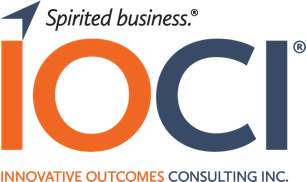
Taking your lumps, learning the hard way, graduating from the School of Hard Knocks – our culture certainly recognizes that failure exists and begins to cushion the fall before it even happens. Yet, why do we often miss this opportunity by not preparing our new leaders for success?
This doesn’t mean that new leaders must automatically fail. But it is worth it to understand the impact when they do. The cost of poor leadership in terms of employee engagement and financial impact of turnover on profitability and productivity is real. A Gallup survey in 2013 discovered that companies with an average ratio of 9.3 engaged employees for every actively disengaged employee experience 147 percent higher earnings per share than their competition. Firms with a closer ratio – 2.6:1 engaged versus disengaged – found themselves 2 percent lower on earnings per share.
But do you want the bad news? Gallup Business Journal also says only 30 percent of employees are actively engaged at their jobs. The Globoforce piles on with its data: a company with 10,000 employees and an employee turnover rate of 11 percent equals an annual loss of more than $41 million. Can you handle more truth? That’s a conservative estimate.
You can’t afford, as a new leader, to wade through your fair share of mistakes.
Get our latest white paper to learn how to avoid common missteps new leaders make — Are You Ready to Lead?
Here are the three common ways new leaders get off track and how coaching can address problems before they happen:
Sabotaged from within
Being a leader tends to make on-the-job relationships trickier even for the best of us. This is particularly true for leaders who came up through the ranks at a company. Suddenly, its not uncommon to find yourself isolated, demanding, overly ambitious and insensitive to others when you need to demonstrate empathy, active listening, good communication, seek and include others’ opinions, and handle conflict resolution effectively.
Most business executives don’t talk about these nitty-gritty details in the job interview, so you set up your desk with a myopic focus on getting immediate results and end up trampling the people you need to reach those goals.
The solution: Management consultants work to set up open environments that encourages employees’ constructive feedback. But leaders need coaching, too, to learn to recognize and cope with the 12 self-defeating behaviors they pack in their message bags: procrastination, suspicion, defensive, over-committed, worry, overly critical, alienating, rigid, hostile, over-controlling, perfectionism and inability to trust.
No talent to lead
Ouch. But don’t take it personally. Gallup suggests that only one in 10 people are born with a talent to manage people, meaning they are motivational, assertive, accountable, create trusting relationships and are effective decision makers. Two in 10 have the DNA for great management. That means 70 percent will have to learn these skills from scratch.
The solution: Coaching not only helps you understand and use these traits – it helps you apply them simultaneously, which is the key to success.
Fall through the gap between buddy to boss
Many leaders are former stars in the employee ranks, high achievers who rose by completing tasks and solving problems. So delegating feels unnatural; you want to show that you can pick up the slack, go the distance, walk the talk – that you’re still one of the team.
Unfortunately, this means the employees in your division won’t be trained to handle the job themselves. You are overstepping your boundaries and denying them the satisfaction of growing, learning and shining. In other words, you are fostering disengaged employees.
The solution: Coaching helps you flip your goals from working toward your own success to working for others’ success.
At IOCI, we help leaders stay on track so they can avoid typical failures like these. Like what you’re learning? Stay tuned with IOCI Insights.
Marialane Schultz is the founder of IOCI. She helps individuals and organizations perform at their best, do meaningful work and be impactful through customized coaching and consulting engagements.

